This post builds on my previous one about gender and tolerance, so I recommend starting there if you haven’t already read it.
Last time, we introduced a graph showing the political tolerance of male and female students of various ideologies. Here’s that graph again, rotated and reversed for clarity:
People farther up are more tolerant on average. People to the left of the center line are biased towards the left and vice-versa. Men are doing a lot better than women, but even men are doing badly, basically regardless of ideology. This raises a vital question. Most people do badly here, but some do well. If we knew what led those people to be more tolerant, maybe we could use that knowledge to create a more tolerant society. We already know gender has a large effect, and ideology has barely any, but what else?
To find what makes people more or less likely to be tolerant, we can look through various traits in our data — things like age, race, or education — and make charts showing how much evidence each trait provides that someone thinks that controversial speakers should be allowed to speak. Loosely, that’s how much each trait correlates with being tolerant.
For example, here’s the plot for race:
I’m normally inclined to regard demographic drivers of tolerance as rather depressing, since it would be better if tolerance were driven by something that can be changed rather than an immutable characteristic. But in this case, there’s a promising note. Mixed-race people are unusually likely to be tolerant. If I were to hazard a guess, I’d say that’s because they are likely to have more diverse backgrounds, something that could be replicated for people of all races. Now the plot for sexual orientation:
This plot compares the members of the groups to others of the same gender. As you can see, gay men are a lot less likely to be tolerant than other men, as are queer men, whereas lesbians are about as likely to be tolerant as other women.
And while our previous report showed that ideology doesn’t play much of a role, background experiences do. Here’s the plot for type of high school:
Dang. I don’t really know why, but homeschooling has a strong effect. Of course, this could either be because homeschooling dramatically increases tolerance, or it could be because more tolerant people tend to homeschool their kids. If it’s the former, what’s being taught differently in homeschool that works so well? Could that be replicated in other schools?
Geography has a noticeable but more modest effect— note that this is where people grew up, not where they go to school:
Of course it’s the midwest. While the geographic effects aren’t massive, this again suggests that there are certain ways to raise people that increase tolerance. Also related to background experiences, religious attendance has a large effect:
Jesus. Again, that’s a large effect. Clearly, more frequent religious attendance makes someone more likely to be tolerant. Interestingly, the people who do worst are those who attend religious services very infrequently, whereas those who never attend do a bit better, perhaps suggesting atheists are more tolerant than religious backsliders.
So how much do these traits actually improve tolerance? Well, we can add some of these groups back onto our earlier free speech map to see where they land. This is the same map as before — we’ve just added markers showing how certain groups stack up:
Especially when combining multiple drivers, the impact is substantial. Women who are both homeschooled and at least weekly attend religious services fully bridge the large gender gap. Indeed, they prove more tolerant than all other groups of women here and most groups of men.
Obviously, these aren’t exactly practical switches one can simply flip. But they do mean that, even when most people are deeply censorious, there are still things that can fairly reliably set people right. And, if we can understand how these things have such a substantial effect, that may help us grow and sustain a more tolerant society.



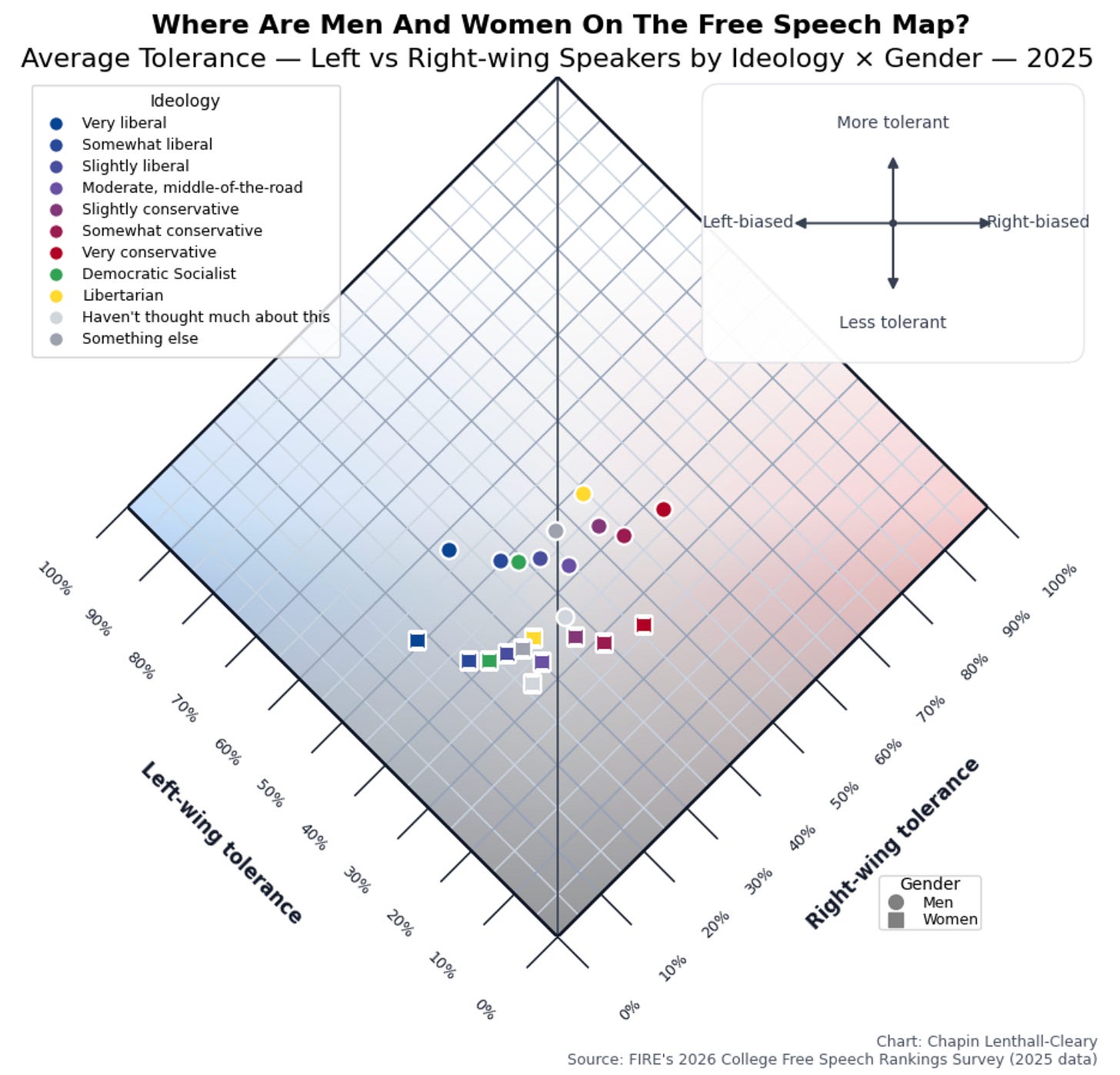
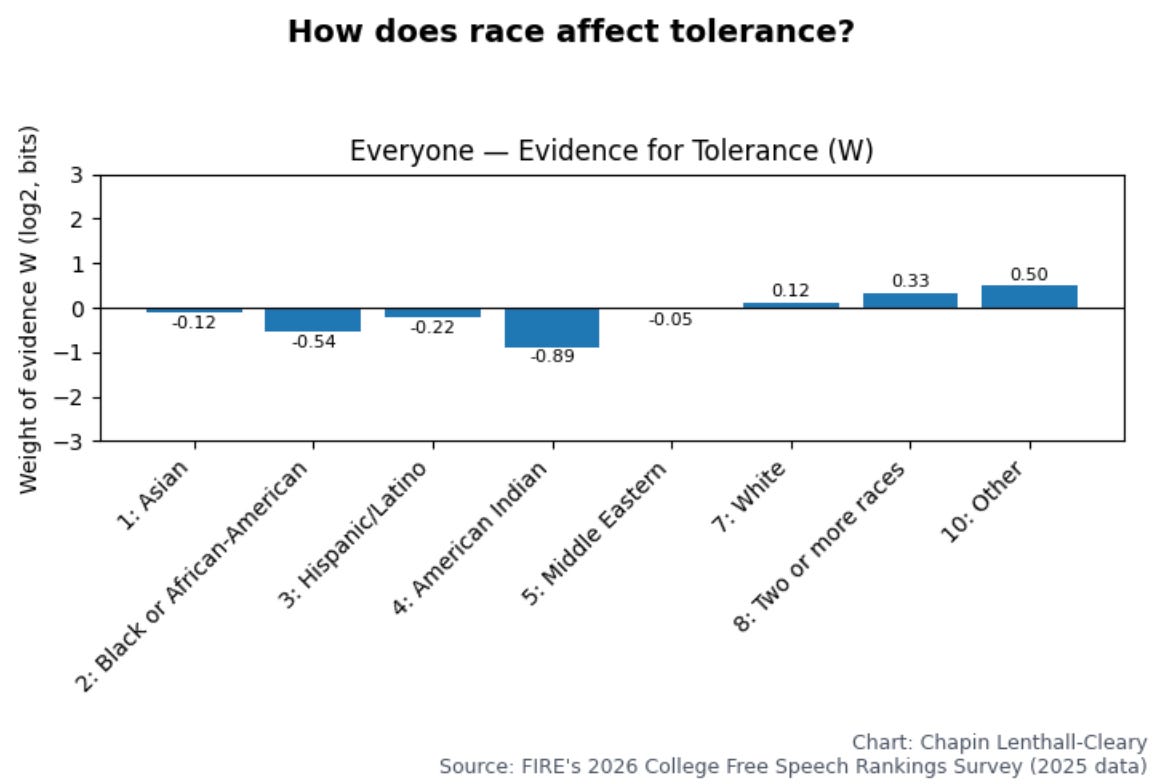
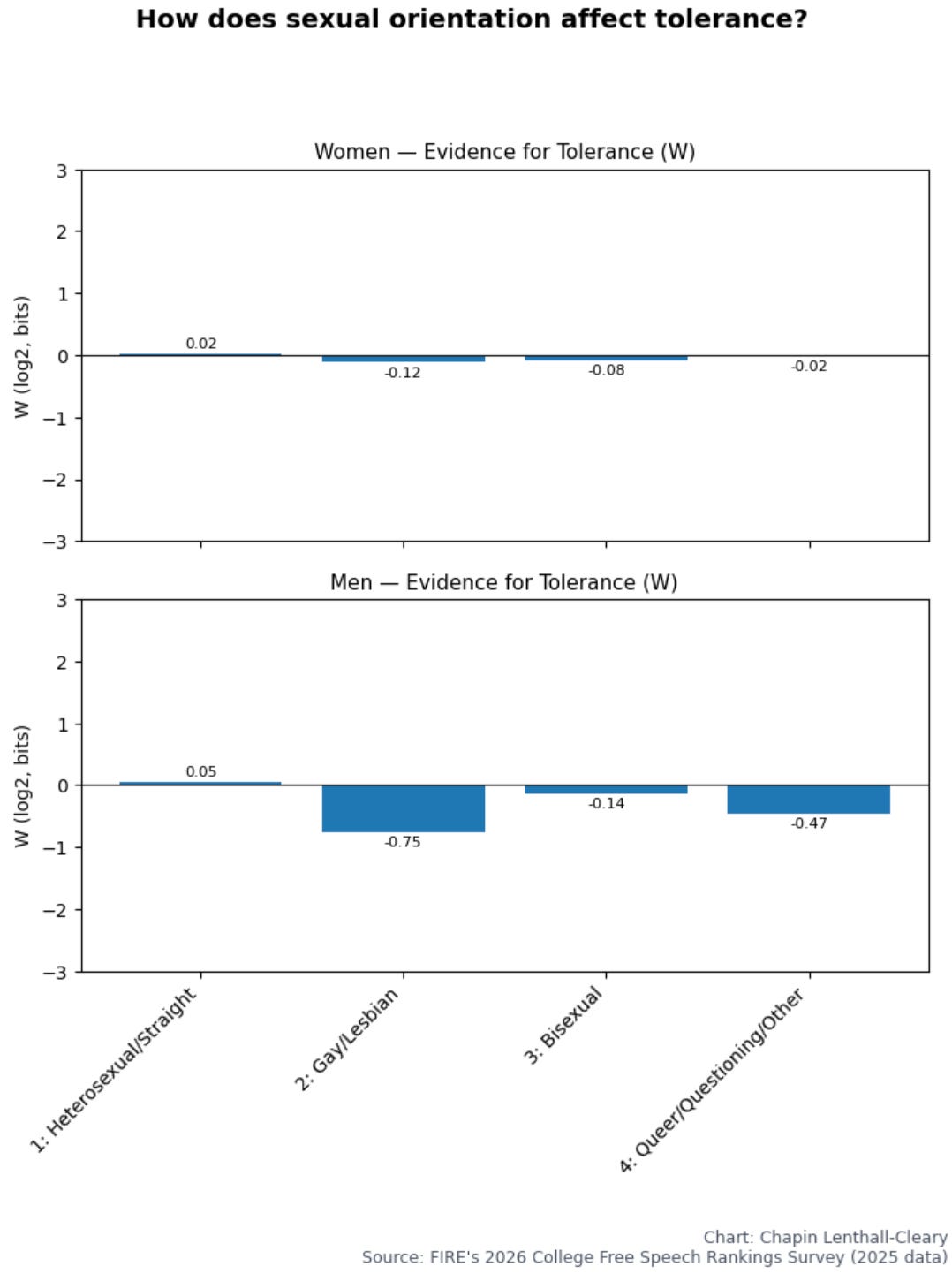
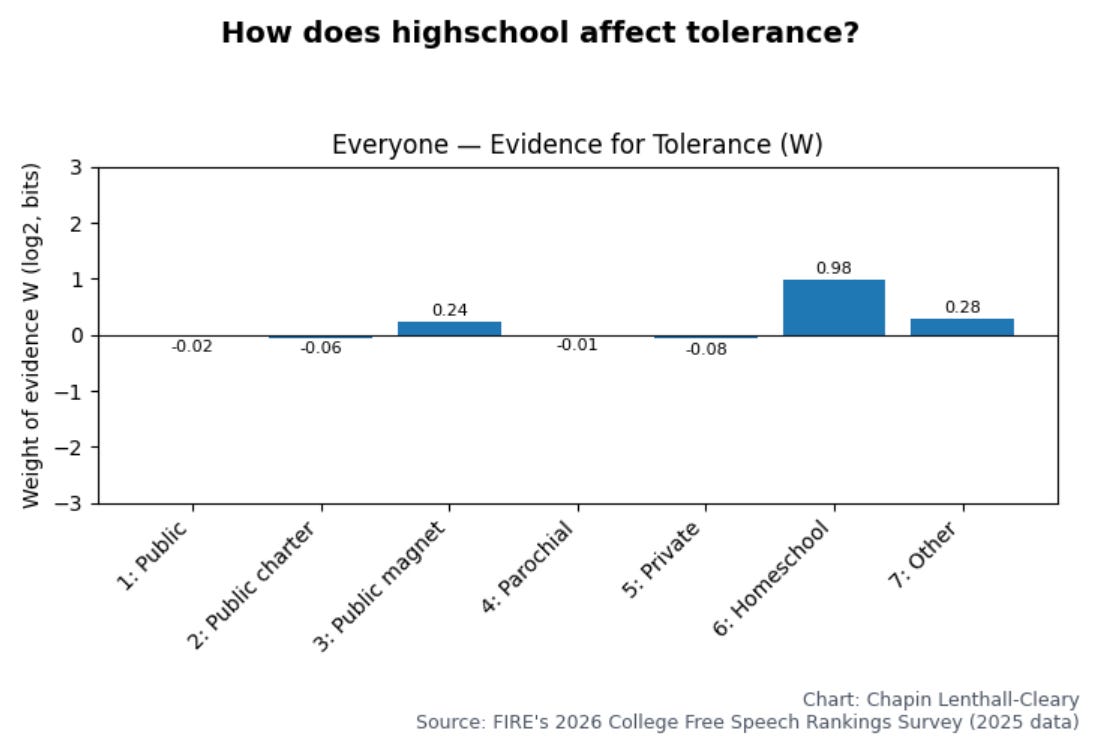
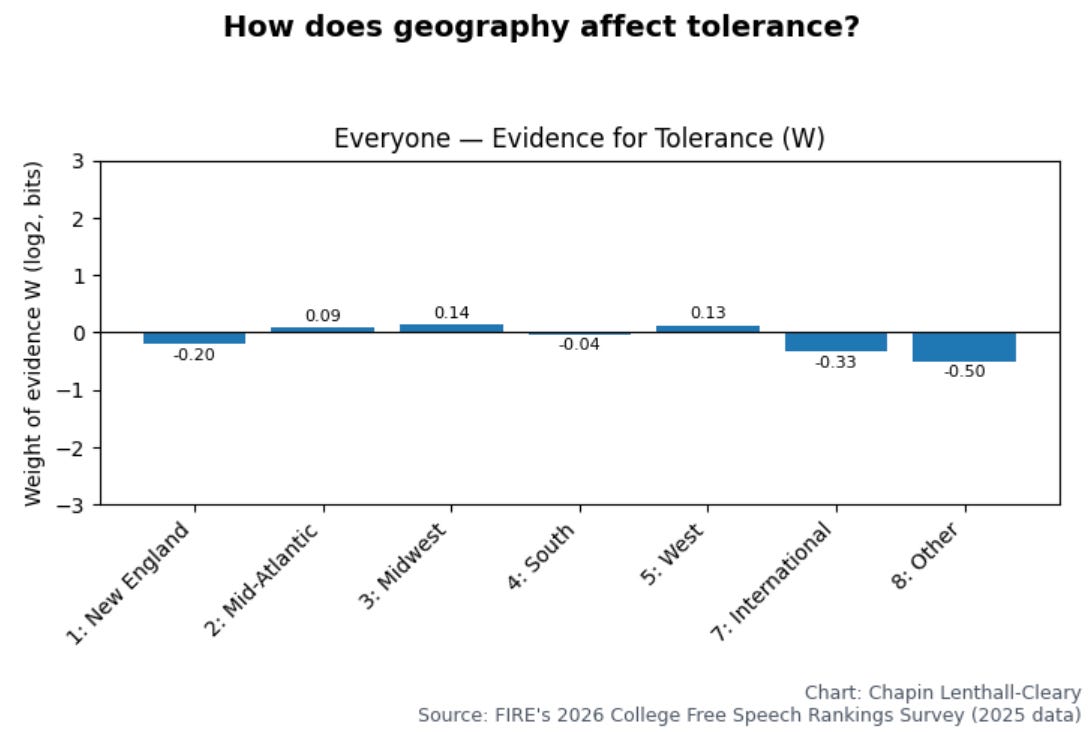
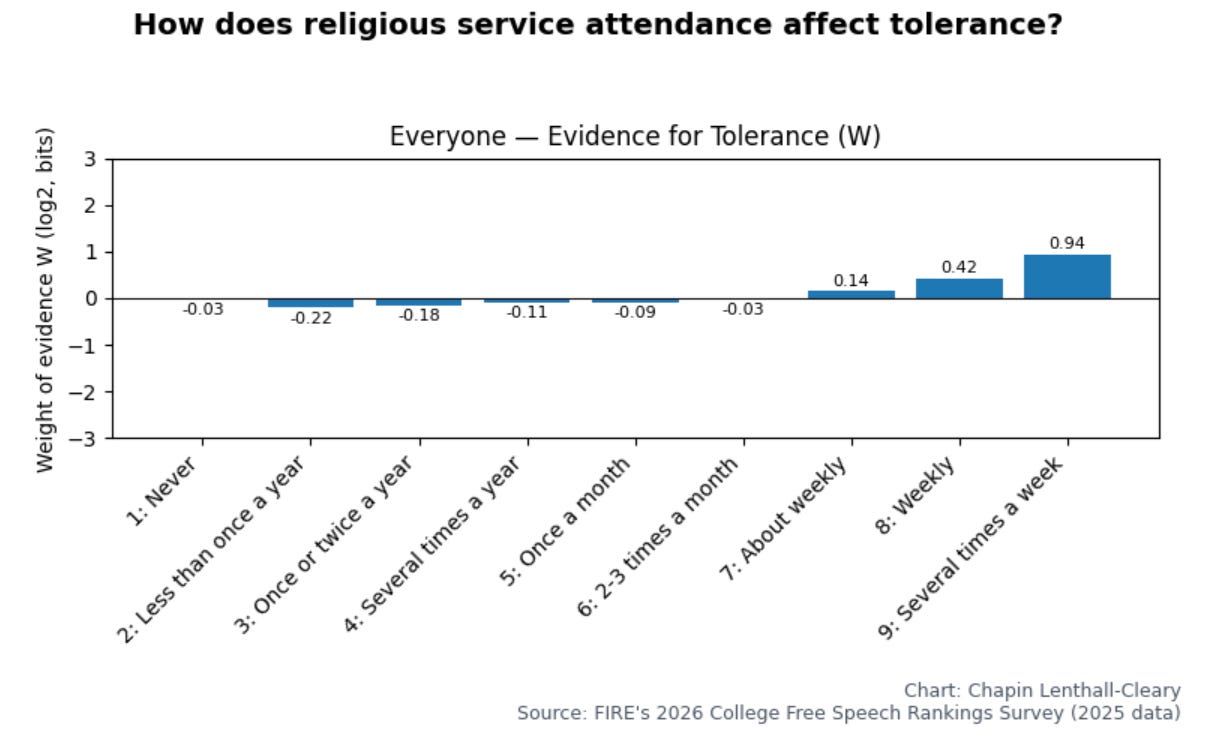
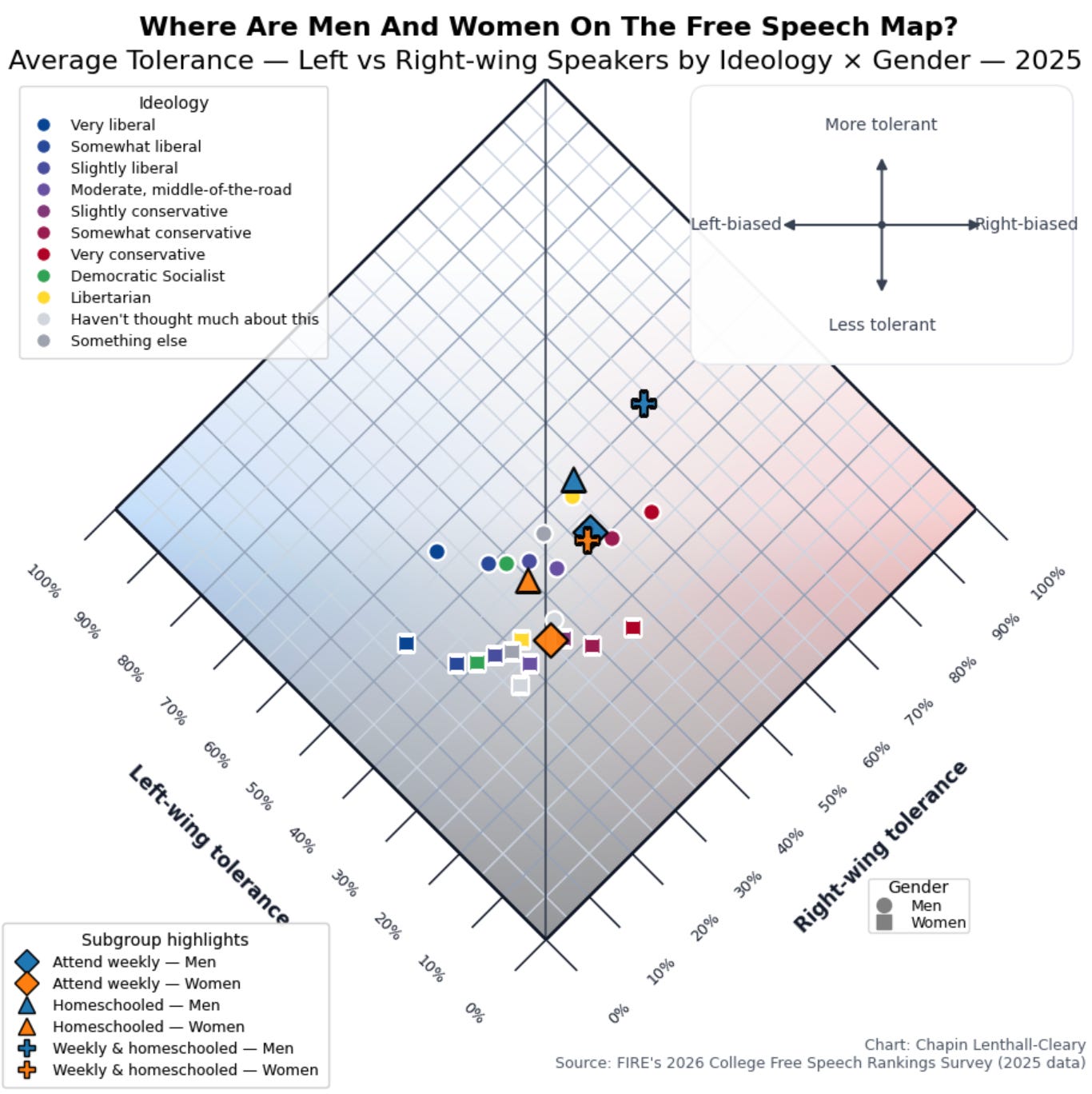

One thing I wonder is whether support for tolerance is driven by a fear of being censored yourself. In that case, people who perceive themselves as being censored would be more likely to proclaim tolerance. So the very religious students might fear that their views get censored (especially if the very religious seek to convert others), and thus they self-report tolerance. Likewise, male students might think they are more likely to be censored and therefore support tolerance more than women.
And there's also an important question (very difficult to study) about whether professed tolerance translates to actual tolerance, where people who say they are tolerant with regard to college campus issues might not be tolerant in reality, and might not be more tolerant on issues outside of college campuses.
Thank you for this and the previous article about gender and tolerance. I think your analyses are very useful and warrant much further research. I have been pretty riveted to this issue lately, as a person who believes quite passionately in the importance of free speech and ideological tolerance. Interestingly, I was homeschooled, and the community in which I grew up was quite religious. I am now an atheist but I have some thoughts on the religion effect as well as the homeschooling effect. People who are deeply embedded in a religious community have a secure and specific sense of their social place in the world and feel inherently set apart from numerous other possible worldviews (not just those that nonreligious people would find controversial). I think there is an inner stability built into that which makes it quite tolerable to listen to divergent views without feeling your own sense of reality to be threatened. You are certain that you are in touch with the truth and well practiced in listening patiently to (and internally dismissing) outside views. Whereas if you do not have a strongly defined and socially reinforced religious perspective, much more of your own worldview is on the table and at stake in any given interaction. You are more likely to feel your own perspective threatened, or to worry about other members of your social world holding or being persuaded by views that you don’t like.
Meanwhile, on homeschooling — my own parents are less tolerant than me; I question the “tolerant parents” explanation of the homeschooling effect; in my experience many parents choose to homeschool because they fear what they perceive to be dangerous outside influence on their children. However, by not being socialized in the kind of broadly regimented/conformist setting that public school creates, I found that I and other homeschooled people I’ve known developed a more individuated sense of our intellectual selves, thus finding it easier as adults to clearly separate out logic, speculation, and inquiry from social emotions.
I hope you continue to research and write about this topic and look forward to reading more in the future.